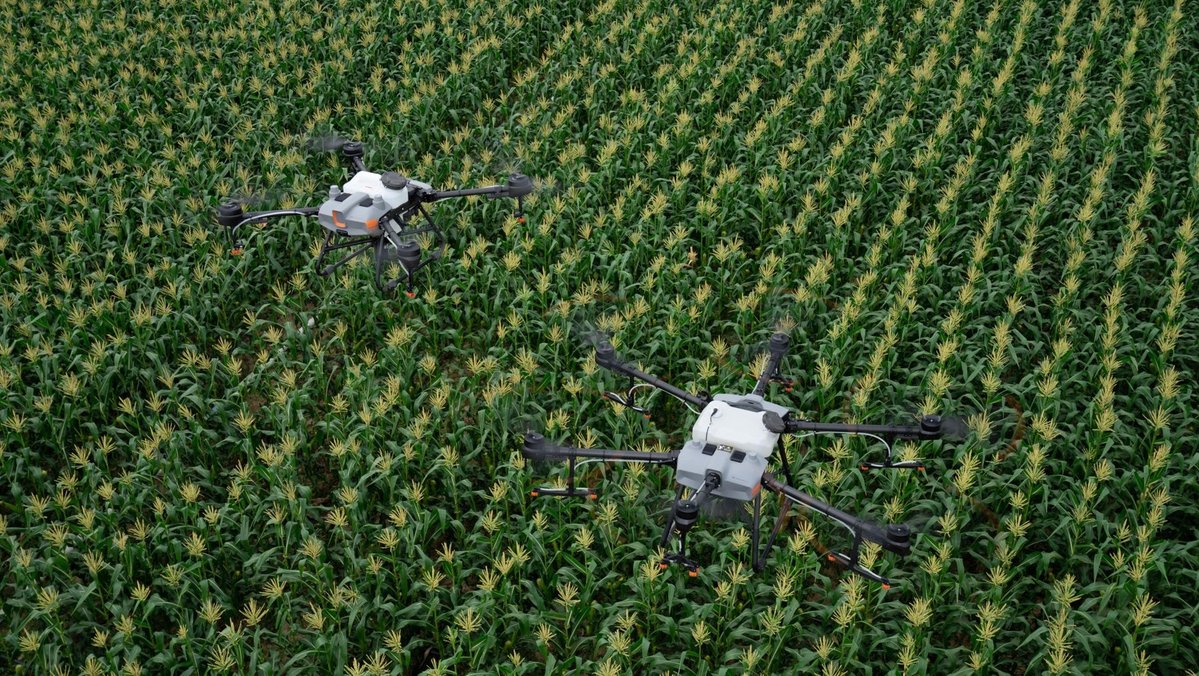Project description
Agriculture is directly affected by the effects of climate change. Rising temperatures, periods of drought and extreme weather events such as heavy rainfall require innovative cultivation methods in order to continue to secure yields and soil fertility in the long term. This is where the ‘Flugsaat’ project comes in, which is trialling the use of drones for sowing catch crops and undersown crops.
Large agricultural drones are used for this purpose, which spread seeds and micronutrients from the air in a precise and resource-saving manner. In comparison to conventional sowing technology, the sowing date is decoupled from the crop and area accessibility with air sowing. As a result, sowing can be shifted to time windows that offer better germination and growth conditions due to the prevailing weather conditions. For example, catch crops can be sown in standing cereal crops before harvest or undersown immediately before row closure.
Catch crops and undersown crops offer ecological benefits such as soil erosion protection and nutrient retention, which contributes to the fulfilment of agricultural climate targets. Economically, they offer biological plant protection and promote soil fertility, which secures farmers' yields and income. In addition, drone sowing has the potential to conserve resources and reduce the workload for farmers.
As part of the project, drone sowing will be tested for catch crops on arable farms and for undersown crops on fodder production dairy farms over a period of three years. At the same time, these areas will be scientifically assessed and evaluated in order to analyse the crop development and the practical suitability of drone sowing. Based on these results, a marketable fly-seed mixture and a fly-seeding guide will be developed. For economic evaluation, the costs of drone sowing will be compared with conventional methods on the basis of field trials. Finally, extensive public relations work and intensive knowledge transfer will be carried out to disseminate the project results and show farmers the opportunities offered by drone sowing.
The ‘air seeding’ project aims to establish drone seeding as a sustainable cultivation method. In addition to sowing, other applications such as the soil-conserving application of mineral fertiliser on areas that are difficult to access or spot spraying are possible in the long term.

